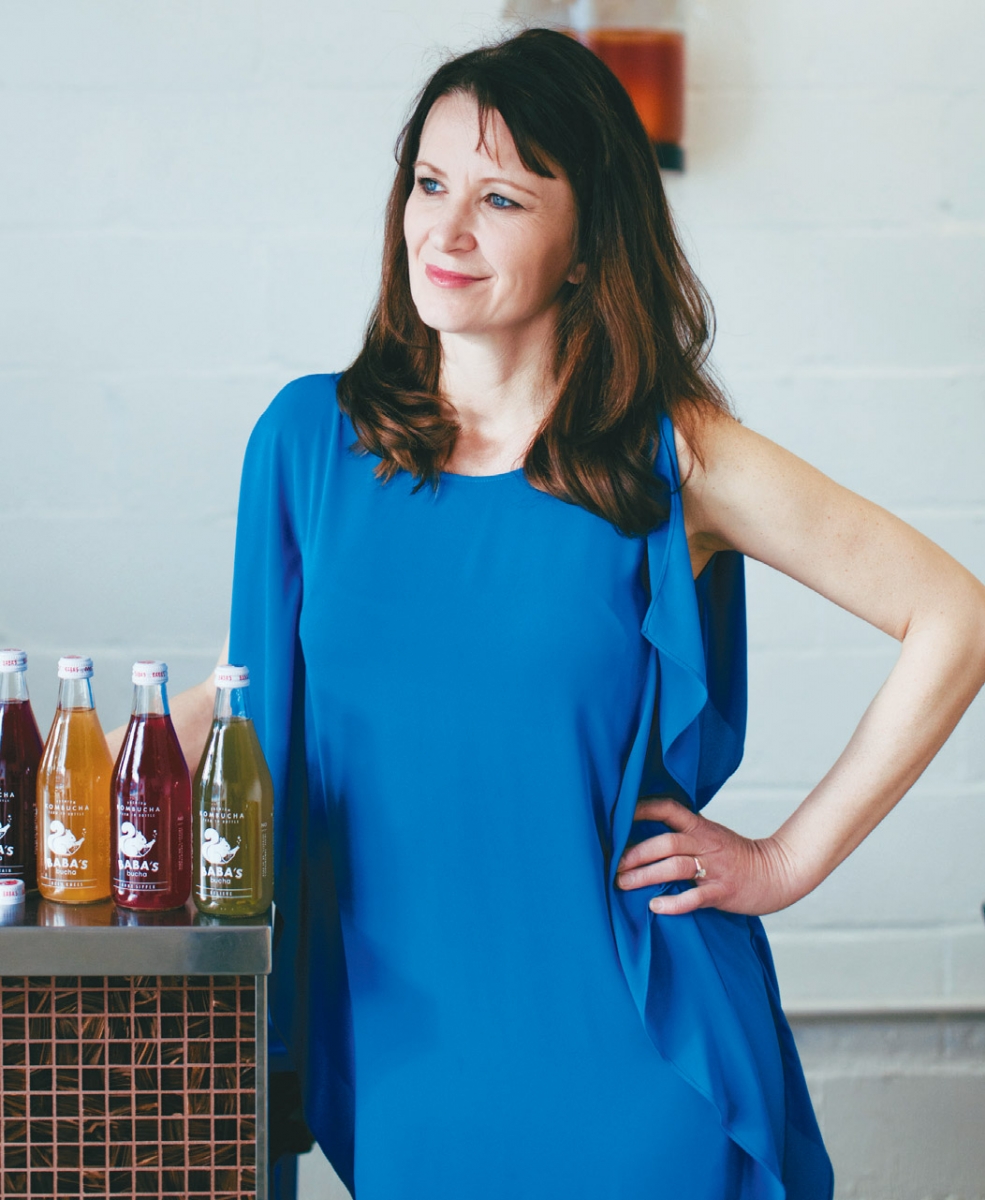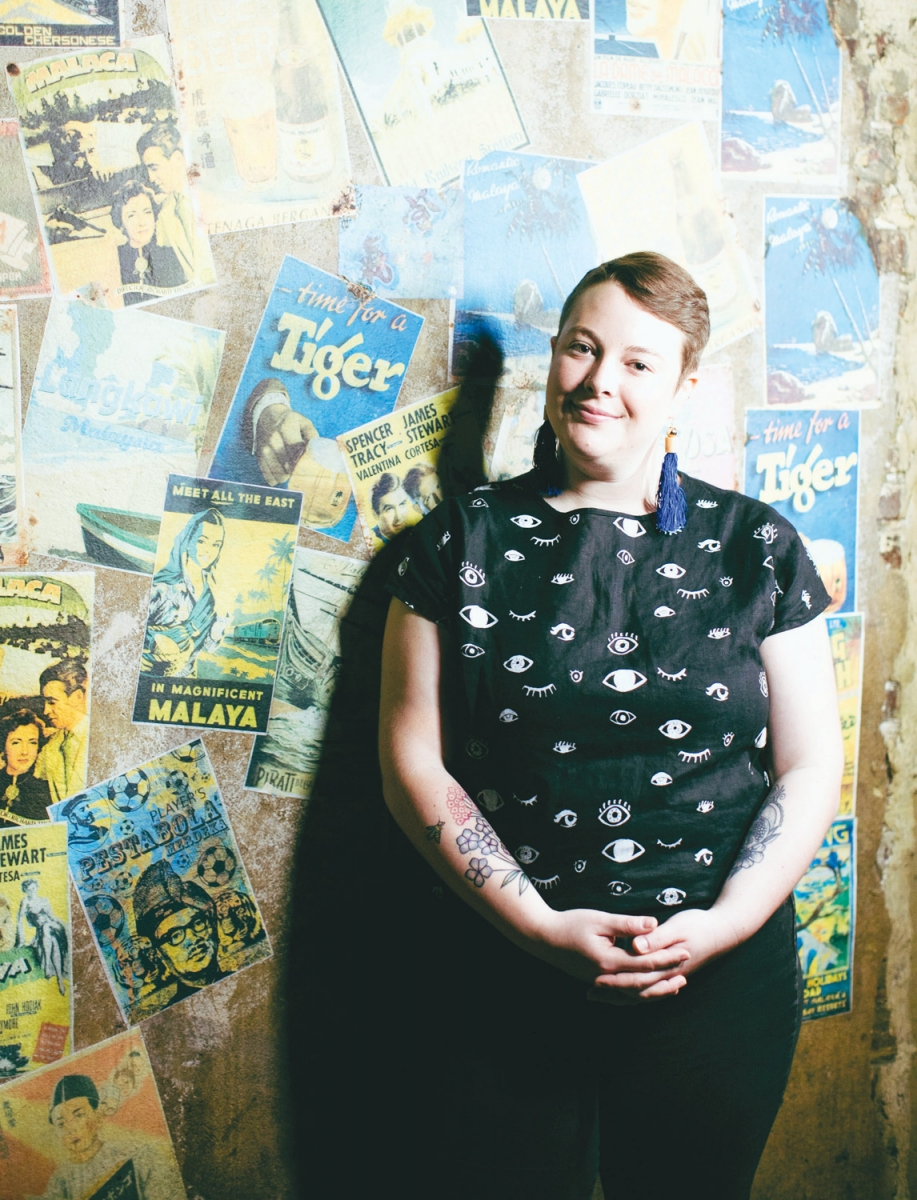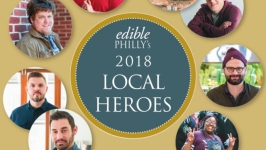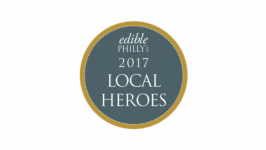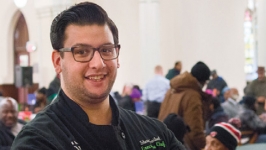2019 Local Heroes
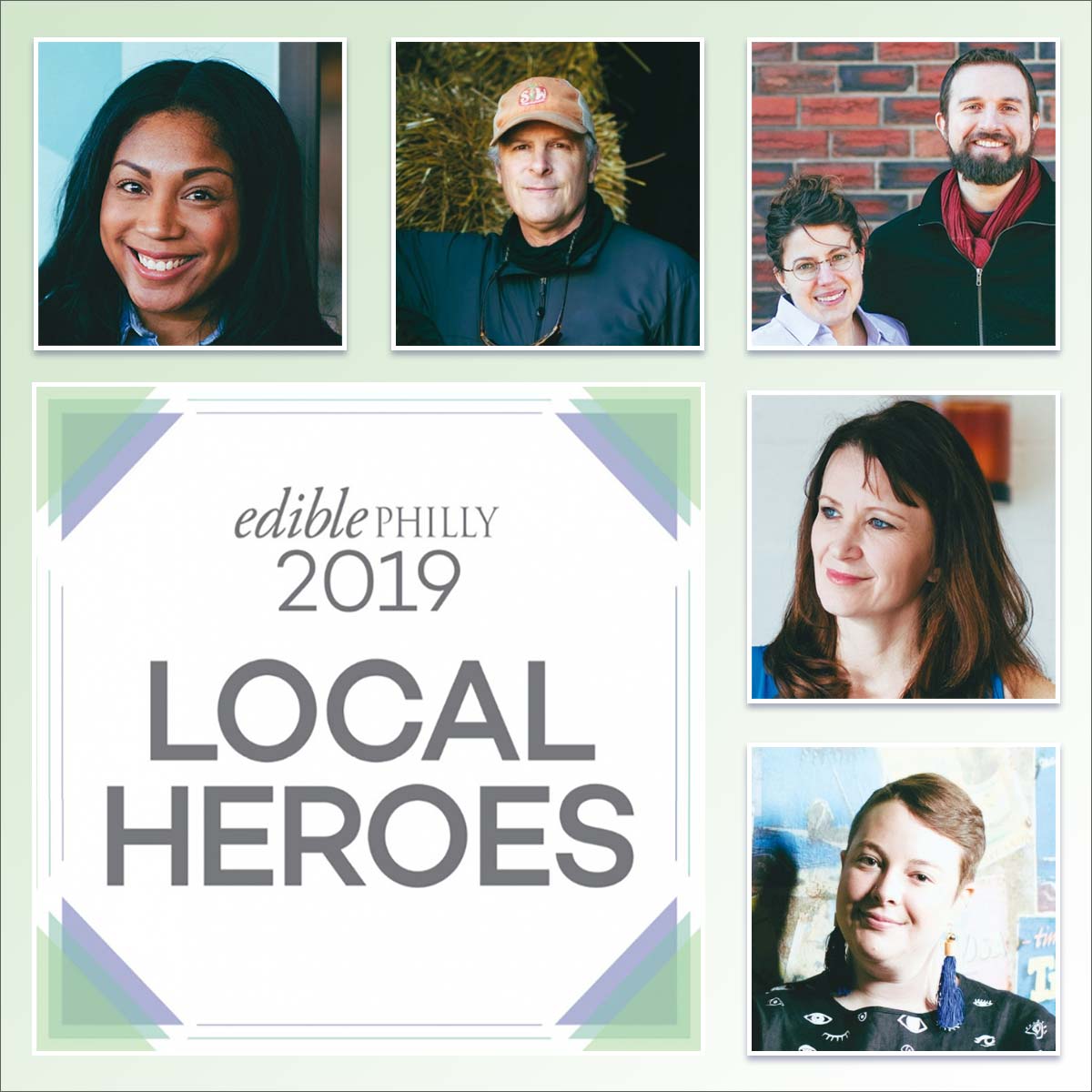
Each year, we honor trailblazers in Philadelphia’s local food scene with our Local Hero awards. Edible Philly readers, contributors and past Local Hero award winners put forward nominees, and our editorial team chose 2019’s honorees. The tastemakers profiled in the following pages make our local food community more vibrant every year.
THE UNCONVENTIONAL CHEF
Stephanie Willis
Eat Prep Love
“People started asking, ‘Can you make that for me?” Willis says.
STEPHANIE WILLIS wasn’t always a chef. Before she started her personal chef biz, she worked on the hospitality side in roles including beverage manager for Jose Garces.
Always an avid home cook, Willis starting eating healthier after her first baby was born. She posted photos of her pretty, plant-based meals on social media, and soon requests flowed into her DMs. “People started asking, ‘Can you make that for me?” Willis says. Soon she was taking orders and scaling up her recipes.
Around this time, she interviewed for a beverage manager position with the Schulson Collective. But then she took a step back. She was a single mom with a three year old. “There was no way I could work those hours.” So she launched her meal delivery service, Eat Prep Love.
In 2017, one of her creations—chicken adobo in taco form—caught the eye of MasterChef scouts and earned her a spot on the show, cooking for Gordon Ramsey. The experience (and the tireless practice in the kitchen beforehand) seriously accelerated her cooking know-how.
Not all her dishes are experimental, though; she makes more traditional food, too. One of her clients, Mr. Jones, an elderly man with Alzheimer’s, loves her baked chicken with lemon and thyme and collard greens.
She also prepares family-size meals, perfect for busy parents. “I’ll do a taco Tuesday for them and send all the accoutrements,” Willis says. They get to put together the tacos at home—it’s a cheaper and healthier alternative to ordering take-out, plus it brings the family together around the table.
“I want to offer people an affordable convenience,” she says. (Her breakfasts cost $10, lunch $11, and dinner $12–16.) Willis’s dream is to open a shop stocked with healthy, delicious prepared meals for people to take home.
Eat Prep Love
stephanie.nicole.willis@gmail.com
email to set up a personal plan.
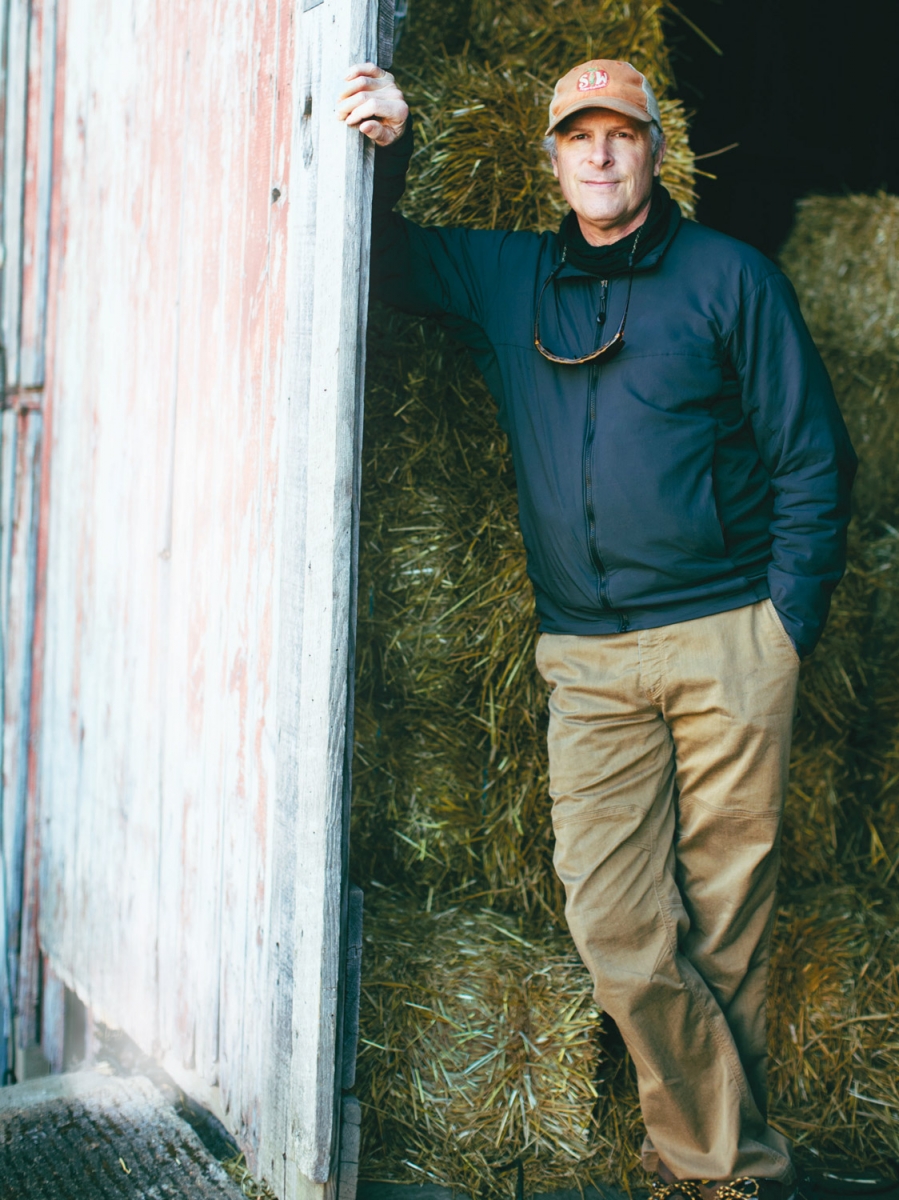
THE TENACIOUS FARMER
H.G. Haskell
SIW Vegetables
“I’m sure if I had worked on the dairy farm as a kid, I never would have become a farmer.”
H.G. HASKELL’s father ran a Guernsey dairy farm until the early seventies. Haskell grew up running wild in the fields, but he wasn’t involved in the day-to-day labor.
“I’m sure if I had worked on the dairy farm as a kid, I never would have become a farmer,” he says. It was the ‘80s—in the midst of the Farm Crisis—when Haskell got the crazy idea to grow vegetables, he says.
Thirty years later, SIW Vegetables raises crops on 60 acres, runs a CSA and has two farm stands. He employs eight full-time helpers, including the grown children of Daniel Olvera, an immigrant from Morelia, Mexico, who’s been helping Haskell run the farm since the very beginning.
Olvera and his kids, now in their 30s, earn more than twice minimum wage and work year round. “They are the heartbeat of this place,” Haskell says. He depends on their help because, even with 30 years of experience, running a farm isn’t easy. On a bad day, the farm is a maintenance nightmare and a money pit, Haskell says. The stress threw him into a personal crisis in 2017. “I nearly closed SIW,” he says. He came out of it with a new perspective of his life on the farm. He restructured the responsibilities at SIW and hired a team to plan more Field to Fork Dinners on the farm, which provide another stream of revenue that helps make the farm sustainable as a business. At these dinners, local and Philly chefs prepare a four-course menu packed with produce grown on site. Guests can tour the farm before sitting down to a family-style meal in the restored 1600s barn.
“Seeing chefs and guests at our dinners and how much they truly enjoy themselves is humbling,” Haskell says. “It shows the support that exists—and is necessary—for a small farm to survive.”
SIW Vegetables, 4317 S. Creek Rd.
Chadds Ford, PA
610.388.7491
siw-vegetables.blogspot.com
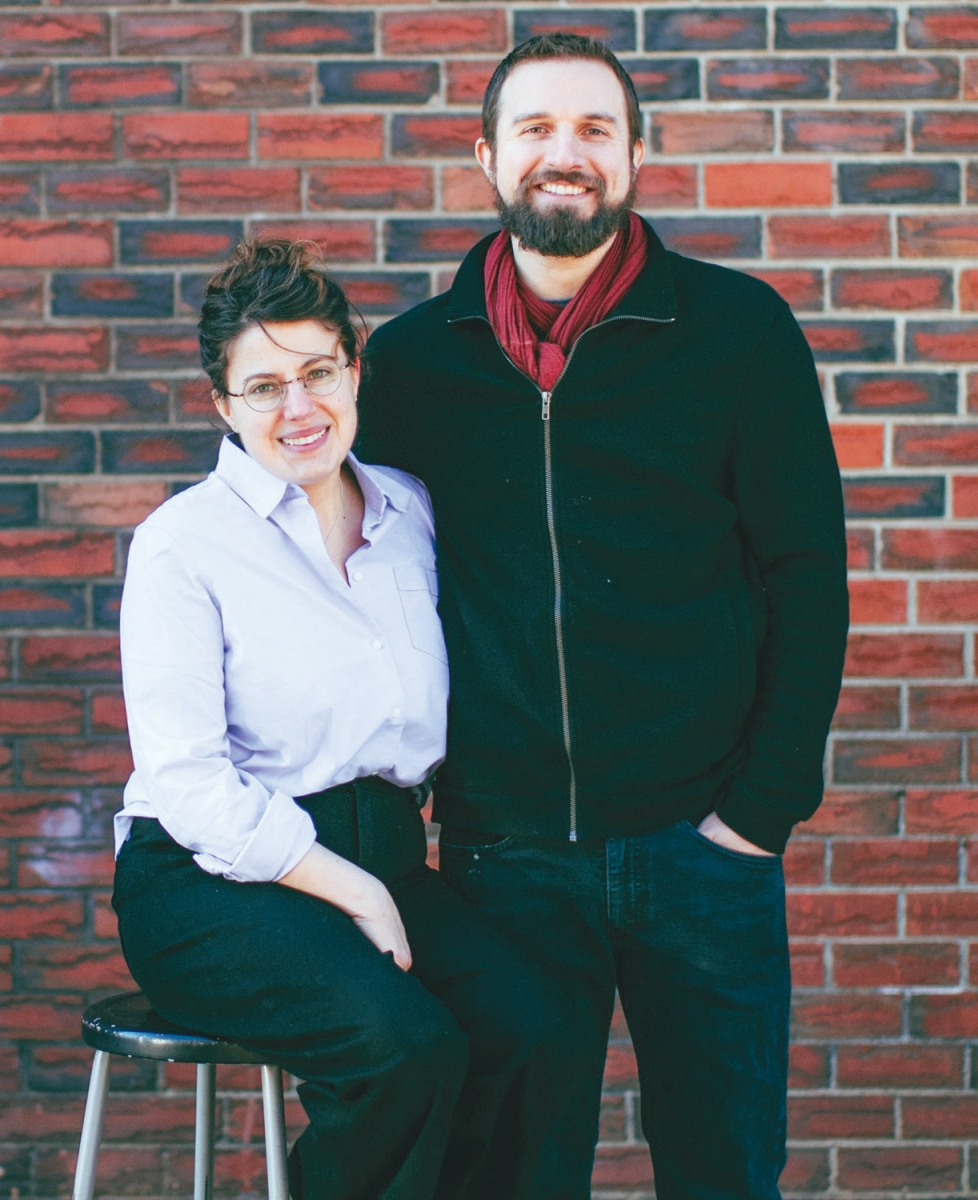
FERMENTATION MAVENS
Sarah Conezio and Isaiah Billington
Keepwell Vinegar
“Our prep cooks are really billions of microorganisms,” Billington says.
SARAH CONEZIO and Isaiah Billington met while working as pastry chefs at Woodberry Kitchen—the Baltimore restaurant known for its uncompromising commitment to local agriculture. They used local produce, meats, grains, and even some local spices. But there were a few things they couldn’t find in the area. Like pantry staples, including vinegar, soy sauce and miso.
As is tradition at Woodberry, they started making vinegar and miso in-house. But Conezio and Billington saw how impractical it was—the process takes up too much space (and time) in small restaurant kitchens.
So they set out on their own to make high quality vinegar with local ingredients, and they launched Keepwell Vinegar in 2016. “Our main goal in making vinegar was being able to use the entire landscape of local food,” Billington says. At their facility on Sunnyside Farm in Dover, PA, they’re fermenting flavors like bitter lemon, ramp, sorghum molasses and aronia berry.
Turns out there were many chefs like them, frustrated with the lack of locally made staples—sales to restaurants make up 75% of their business. Philly establishments like Suraya, Fork and Marigold Kitchen, plus a dozen restaurants in Baltimore and DC, buy Keepwell vinegar by the gallon.
Which means they’re able to support more local growers, and not just by purchasing prime mid-summer produce. With the help of bacteria, they’re able to preserve what might otherwise become waste.
“Our prep cooks are really billions of microorganisms,” Billington says. They can take surplus off farmers’ hands during high season and make use of irregular produce, ultimately keeping a lot of flavor out of the compost.
Lucky for us, the couple makes more than vinegar. Their misos (labeled White Rose Miso), made with local grains, seeds, sweet potatoes and sunchokes, are coming soon to local markets like Riverwards Produce. It’s another line of products that preserves even more flavors of our local landscape and inspires chefs and home cooks alike.
Keepwell vinegars are available at grocers like Di Bruno Bros, Weavers Way, Primal Supply and Headhouse Farmers’ Market.
Keepwell Vinegar
Dover, PA
keepwellvinegar.com
KOMBUCHA CZAR
Olga Sorzano
Baba’s Brew
“If we had to ship our kombucha to California, it doesn’t matter if we’re using local apples—we’d still have a huge carbon footprint.”
UNLIKE THE REST OF US, Olga Sorzano didn’t discover kombucha in the last 10 years—she’s been drinking the now-trendy fermented tea her whole life. Her great grandmother kept a half gallon of it on top of the 60s-style refrigerator at her home in Siberia, where Sorzano grew up.
She remembers asking her great grandmother, who she called Baba, for a glass of kombucha. “She’d taste it and say, ‘ah— two more days,’” says Sorzano. Baba knew just when it was the right balance of sweet and tart and vibrantly fizzy.
It’s that flavor Sorzano seeks to capture with Baba’s Brew, the kombucha company she and her husband, Troy, started in Phoenixville in 2015. Her brews, like Purple Rain (blueberry-ginger) and Flower Power (lavender, rose, tulsi and hibiscus) are flavored with whole fruits and spices— not juices or extracts—because that’s the way her baba did it. She also wants to highlight local ingredients without adding excess sugar to the naturally good-for-you beverage.
“Kombucha is a living food full of enzymes and probiotics that rebuild your gut flora,” Sorzano says. She often drinks it instead of alcohol at the end of a long day. “I pour kombucha in a fancy wine glass, and it’s just as satisfying.”
Sorzano’s motivated not only by good flavor and health, but also by good environmental practices. She uses a blend of black and green organic, fair trade teas from Teatulia; her brewing process is wind powered; and you can refill your bottles or growlers anywhere it’s served on tap or at the brewery, A Culture Factory (visit the tasting room to try highly seasonal and experimental brews). And, of course, she uses loads of high quality local ingredients, like apples from Frecon Farm, which is located down the road from the brewery.
Sorzano’s been approached by investors wanting to help her expand, but it’s not in the plan. “If we had to ship our kombucha to California, it doesn’t matter if we’re using local apples—we’d still have a huge carbon footprint,” Sorzano says. “We want to pay a fair price to our farmers and make the best kombucha from Virginia to New York.”
A Culture Factory
333 Morgan St., Phoenixville
267.738.1973
babasbrew.com
THE PUBLIC SERVANT
Anita Davidson
Director of Muhibbah Dinners
“Public service is in my blood.”
FOR ANITA DAVIDSON, a grant writer and manager for SEPTA, food is the best way to make friends. She lives a block away from Sate Kampar, so it was only a matter of time before she and chef-owner Ange Branca became pals—and cooked up a project together.
The duo founded the Muhibbah Dinner Series, a nonprofit that brings cooks from kitchens across the city to serve a dish from their heritage at special dinners. The proceeds benefit immigrants and refugees in Philadelphia.
You might think running a philanthropic nonprofit after hours would drain a person. But Davidson is energized and inspired by the work.
Since their first dinner in 2017, Muhibbah has raised more than $33,000 to support organizations like HIAS (Hebrew Immigrant Aid Society) and the Philadelphia- based Nationalities Service Center.
“We’re able to be so generous with our donations because people are so generous with us,” Davidson says. Volunteers run the front of house, restaurants and venues across the city offer up their space and chefs donate their time, which means about 90% of the proceeds go directly to the cause. (Tickets average $125.)
Representatives from each organization speak at the dinners. Davidson recruits officials like District Attorney Larry Krasner and the deputy mayor of public engagement, Nina Ahmad, to speak about Philadelphia’s commitment to our immigrants and refugees.
One of Davidson’s favorite parts of the dinners is peeking into the kitchen. “I love getting to see our chef collaborators form relationships,” she says. “They’re always working, so they don’t often get a chance to meet each other.”
Davidson credits her parents for her itch to do good. “My mom worked for the city for 37 years and was union president [of a local AFSCME chapter] for 20 years,” she says. “Public service is in my blood.”



